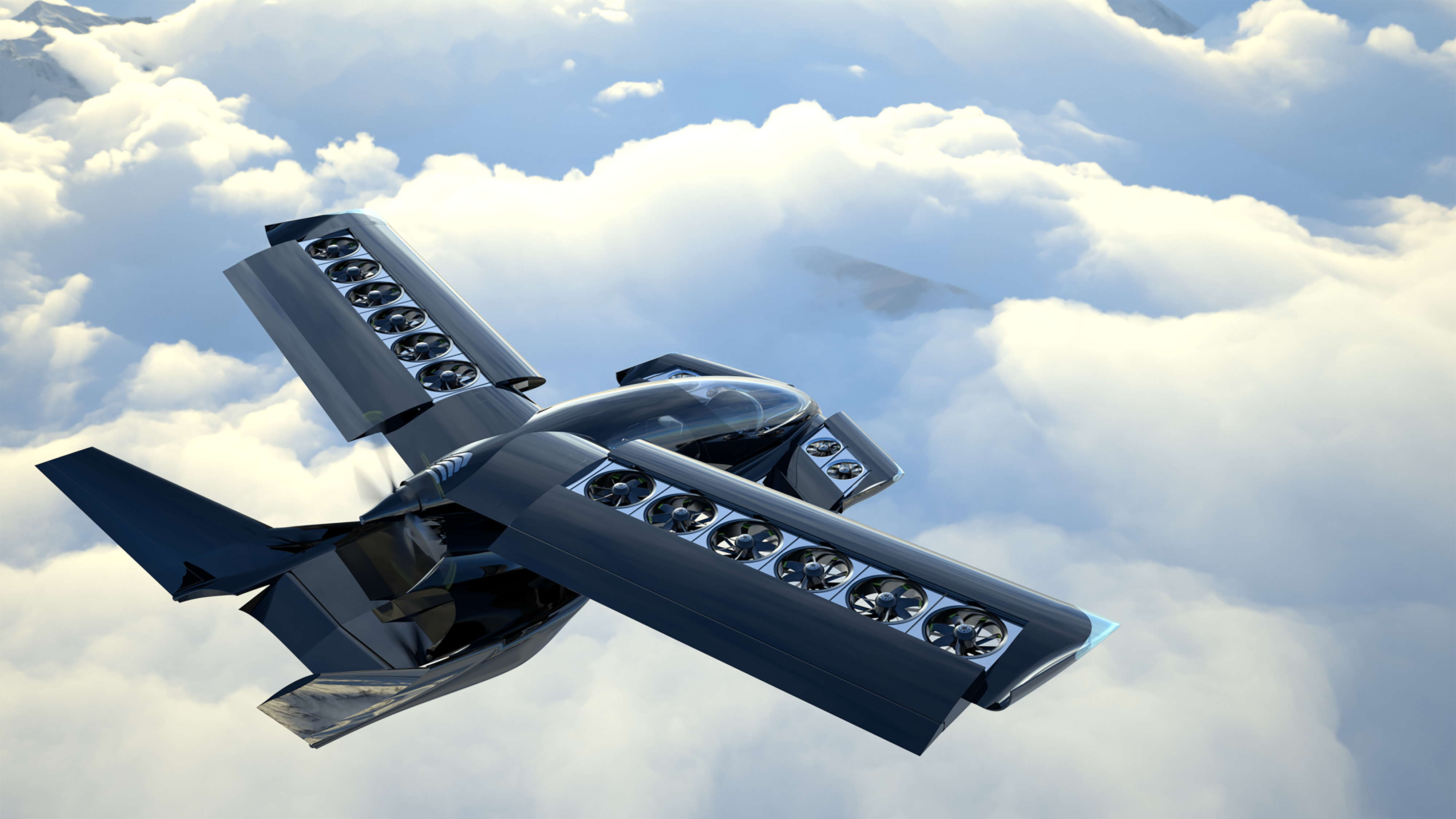Click Here to View This Page on Production Frontend
Click Here to Export Node Content
Click Here to View Printer-Friendly Version (Raw Backend)
Note: front-end display has links to styled print versions.
Content Node ID: 418931
The soon-to-be-merged business consisting of Astro Aerospace and Horizon Aircraft will jointly advance plans for three new aircraft intended to serve an array of applications, including passenger transportation, cargo, and emergency medical support. When Astro’s acquisition of Horizon is complete around early April, the combined company will step up the development of the latter’s five-seat Cavorite X5 eVTOL while also advancing the smaller autonomous Elroy model and the Alta logistics platform.
According to Canada-based Horizon’s founder and CEO Brandon Robinson, his company’s engineering capability will provide extra muscle to accelerate the Elroy and Alta programs for its new Texan parent company. He told FutureFlight that Horizon has previously supported Astro with some projects and that when the time came for it to raise further funding for the hybrid-electric Cavorite, the offer from Astro seemed like an ideal strategic choice.
Robinson revealed that his team has already been flying a sub-scale prototype of the Cavorite in stealth mode. “We would love to have it in production by 2025, but the first [eVTOL developers] to get an aircraft in service won’t necessarily be successful,” he commented. “It is more important to have the right product for the right market and with the right safety and at the right cost.”
The value of the deal has not been disclosed but Horizon has previously indicated that it might need an investment of around $100 million to complete type certification. Its next step is to prepare a larger-scale prototype to begin flight testing.
Astro Aerospace first achieved a manned flight with the Elroy two-seat multicopter in 2018. Since then, this program and the Alta eVTOL project have appeared to be progressing at a somewhat gradual pace.
The most novel aspect of the X5’s design is its fixed wing, which is intended to support flights of just over 300 miles and at speeds of almost 280 mph. The propulsion system features 16 ducted fans, 12 of which are built into the main wing, with the other four in a forward canard, plus a rear pusher propeller for cruise flight. For vertical flight, the wing surfaces retract to open up the ducted fans before closing up again to maximize the aerodynamic efficiency of the wing.
Superficially, there are some similarities with the Lilium Jet with its 36 ducted fans. But Robinson stressed that loading for this architecture is different. “For most of the mission, the X5 flies just like a normal aircraft,” he explained.
Initially, Toronto-based Horizon had intended to develop a STOL aircraft. “But then with marginally more engineering, we realized we could make a VTOL and so designed a mission set that we knew would be profitable around that,” said Robinson.
The Cavorite is named after the fictional material invented by the character Mr. Cavor in H.G. Wells’s science-fiction novel The First Men in the Moon. The material negates forces of gravity, allowing a spaceship conceived in 1900 to escape the earth’s gravity and travel to the moon.
When battery technology has moved on by leaps and bounds, Horizon will likely work on an all-electric eVTOL model. With the exception of some limited intra-urban operations, Robinson argued, most eVTOL applications will need much more range than all-electric aircraft can offer today, especially taking account of the safety need to operate within all flight conditions and allowing for fuel reserves. “Some of these aircraft can barely fly 30 minutes on one charge, and still less have that margin for safety,” he maintained.
Earlier this week, Robinson said that to prevent accidents and fatalities, air taxi operators using the new models must have safety records that are equal to those in the existing commercial aviation sector. The former F-18 fighter pilot warned that any accidents or breaches of safety in the early phase of advanced air mobility adoption could undermine the new sector's potential by undermining consumer confidence and causing problems with regard to regulatory approvals.
"There is much debate around the safety requirements of eVTOL aircraft, with some commentators, for example, saying they should be twice as safe as driving a car or have safety records on a par with helicopters," Robinson commented. "The safety bar must be set much higher so that potential passengers, regulators, and other stakeholders have the highest possible level of confidence in the first eVTOL aircraft."
